It’s been a weird and disturbing week and a half in conservative politics. Apart from Joyce, we saw the astonishing rejection by the NSW Nationals of the party’s greatest modern statesman, John Anderson, as their Senate candidate at the next election. This was a grotesque moment.
Almost equally grotesque was the decision by the South Australian Liberal Party, a division long, long accustomed to electoral failure, actually moving to suspend or expel hundreds of rank-and-file members who had had the infernal effrontery to join the Liberal Party as if it were a democratic organisation, and who committed the even greater crime of being, many of them, associated with Christian churches. After a week of deserved embarrassment, the party more or less reversed itself.
The rejection of Anderson in NSW and the rejection of Christians in Adelaide are signs of the pure madness, the mean-spirited, know-nothing destructive selfishness, of factionalism. So we’ve learned that factionalism is as ugly and strong in the Liberal and National parties as it traditionally was in the Labor Party.
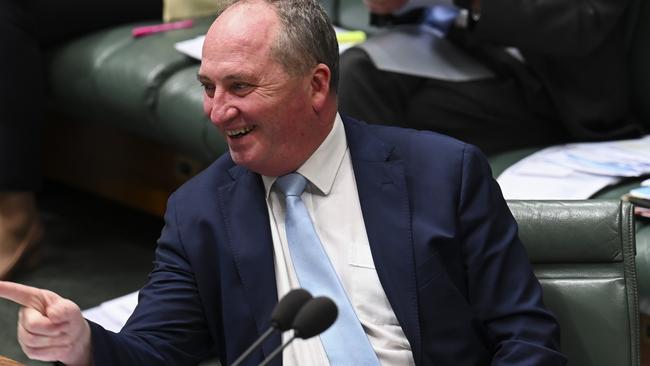
The NSW Nats are also becoming a very unsuccessful organisation. At state level they are incapable of providing any counter-leadership on any issue. As a result they are progressively losing their base. The Shooters, Fishers and Farmers party, without any well-known leader, has three lower house state seats and one in the upper house, where One Nation has two.
There is a growing intellectual incoherence and ideological vacuum in centre-right politics throughout the West. This is illustrated perfectly in the NSW Nats. Managerial competence is provided by the Liberals, who also provide a home for some conservatives. The NSW Nats, at the state level, cannot challenge the progressive zeitgeist. They have little or nothing to say about the often nutty woke pieties in the school curriculum, they cannot conceive of the economy in sufficient theoretical depth to offer any alternative to conventional wisdom, on anything from climate change to regional development. They are almost entirely reactive and concerned with the spoils of internal factional disputes.
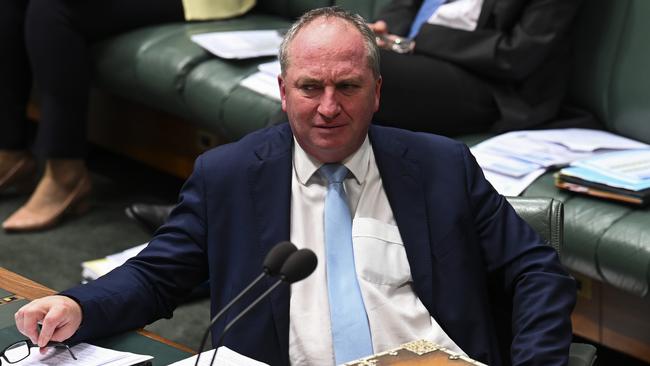
The federal Nationals are different. Joyce gives them a chance at renewal. Michael McCormack is an utterly decent person, but he failed as a leader. He couldn’t assert a National Party identity within the Coalition, or project one to the broader community. He couldn’t manage his party.
Nonetheless, it’s interesting that the things that might once have counted in his favour – his long, stable marriage, his steadiness, his personal reliability, his obvious integrity – were never a factor. I’m not remotely suggesting politicians should be judged politically on their private lives.
Yet in some respects that is actually happening in centre-right politics, but in the reverse of the normal, historical way of things. The political persona of Joyce bears comparison with Boris Johnson and Donald Trump. Of course, neither Johnson nor Joyce projects a squillionth of Trump’s nastiness. But the intellectual vacuum on the centre right is throwing up leaders whose basis of connection to the electorate is essentially a celebrity quality of personal intensity and entertainment value. Some people voted for Trump and Johnson despite the frequent chaos of their lives and their inability to hold to most consistent lines of policy.
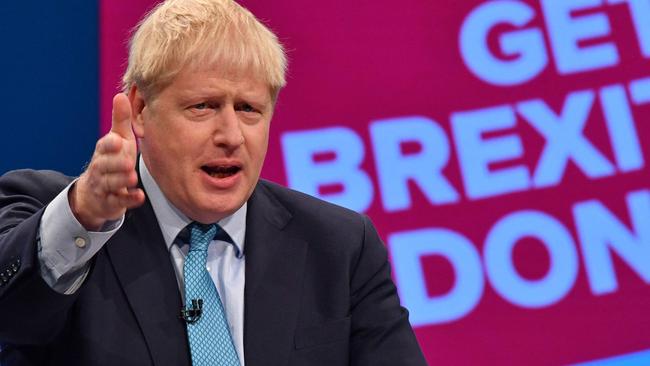
But a lot of people voted for them because of those factors. Trump and Johnson relate to their electorates like Kim Kardashian relates to her TV audience. That’s not the whole story, of course. There were very substantial, good reasons to vote for Trump and for Johnson.
But beyond some core prejudices, both have been wildly inconsistent in most policy matters. Both – this is hard to believe but I promise you it’s true – once talked a lot about balancing budgets. Both became historic, massive spenders. This was exacerbated by Covid but not caused by it.
Trump and Johnson do both represent national self assertion, which is probably the bare bones of centre-right commitment once the traditional view of a predominantly Judeo-Christian cultural inheritance and ethic is gone, along with the old conservative idea that you shouldn’t permanently spend what you don’t earn, and the similar eclipse of other conservative ideas, such as respect for institutions.
Johnson has the specific positive of Brexit, for which he deserves great credit. His perennial good humour, in contrast to Trump’s relentlessly snarling, multi-directional hostility is a great benefit for British politics. But Johnson has abandoned almost all conservative positions on social issues. He is a nationalist, but from climate change to gender blather he now speaks relentless woke with the best of them.
It may be that the whole left-versus-right dialectic in politics is disappearing. The most likely coalition arrangement after Germany’s next election is predicted to be a Christian Democrat alliance with the Greens.
Stylistically, Joyce is much more Johnson than Trump. That’s a good thing. Apart from the intense period surrounding his resignation three years ago, Joyce is almost always good humoured. He’s not as witty as Johnson – no one really is – but he loves a joke and a laugh and a smile.
He is at his best when he is sticking up for his base – regional Queensland, the Hunter, farmers generally, the resources industry, even perhaps parts of Tasmania. He is, as every Nat should be, strong on national security and understood the challenge of China before most other senior politicians.
Labor will try to tag him as bad for women. That image can be a real problem for conservative leaders so Joyce should handle it with ongoing humility and low-key responses. The electorate forgave Bob Hawke everything because it accepted his remorse.
On climate, Joyce helps Morrison. The spot the Coalition should land is net zero emissions (however impossible in the real world this is) through technology, as Morrison argues, and no fixed target for 2050. That will allow it to hurt Labor in regional seats, whereas being identical to Labor won’t win it anything. And Joyce’s big contribution is in the regions.
All this is necessarily makeshift. The future pattern of centre-right politics remains deeply unclear.


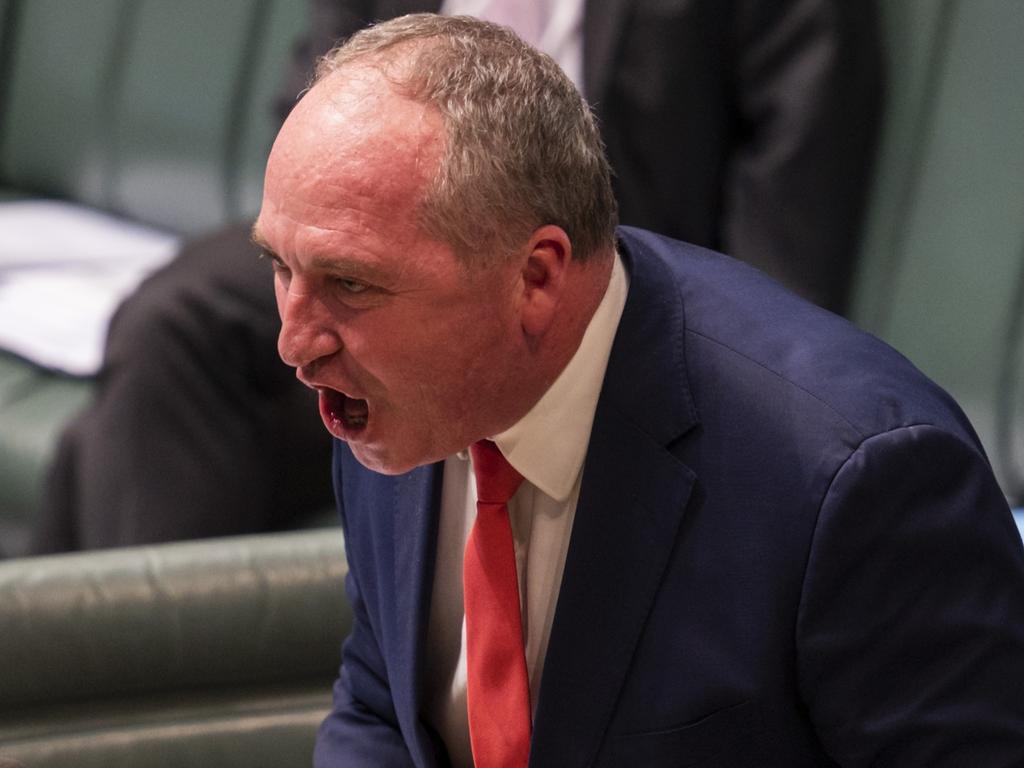
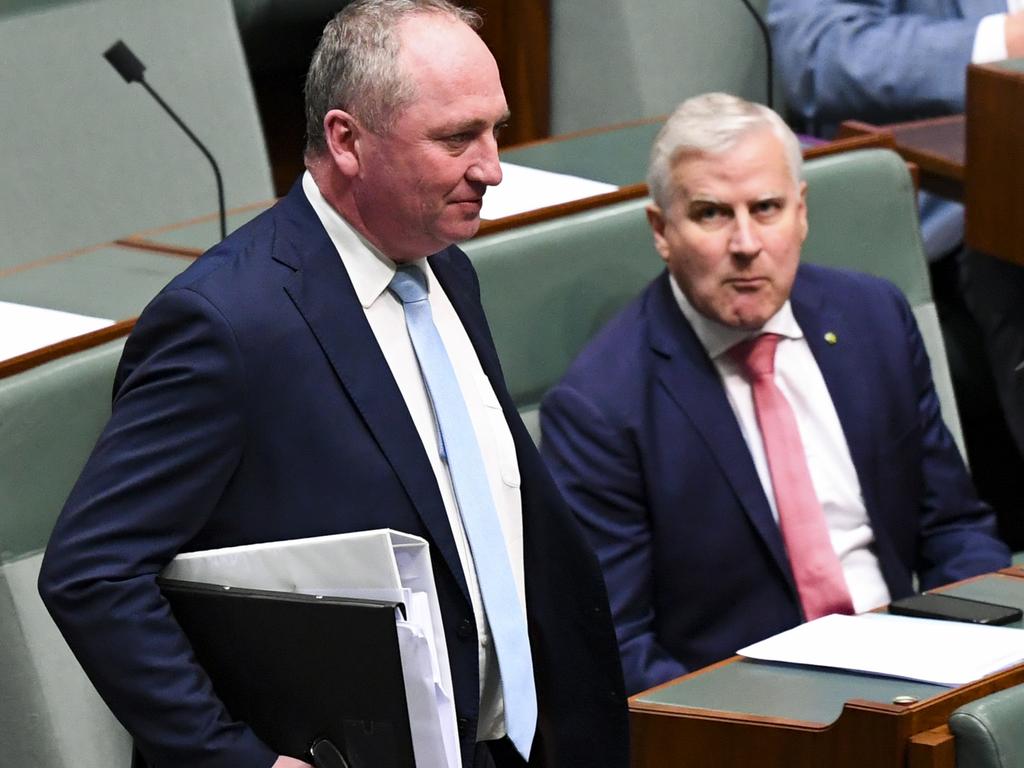
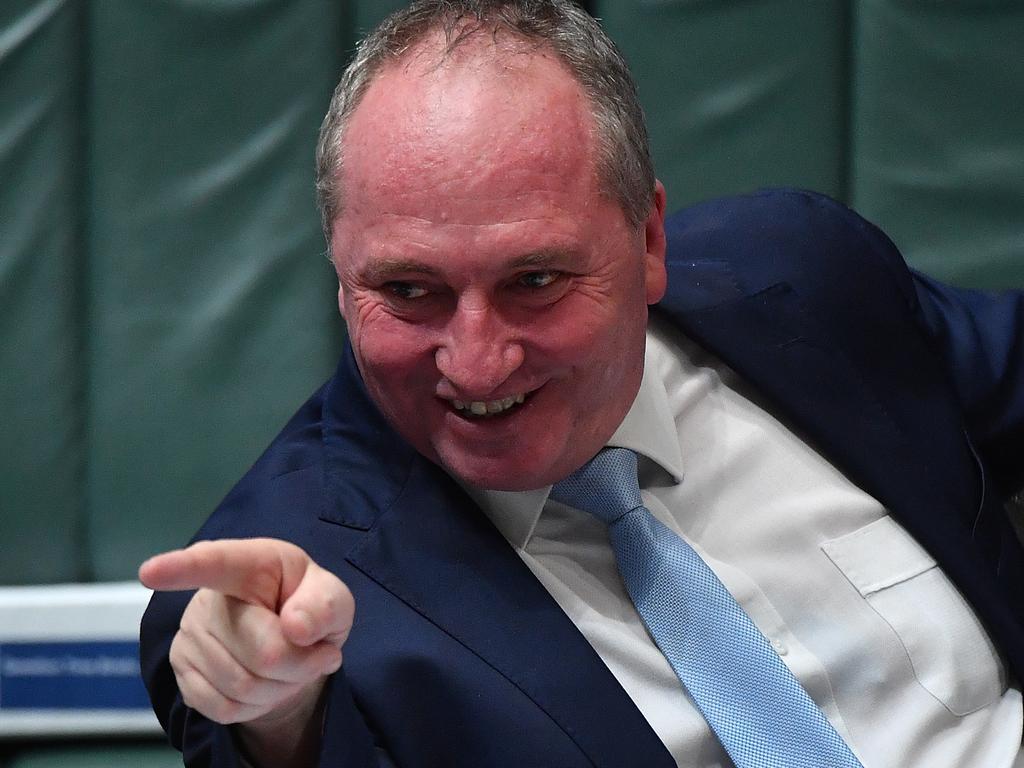
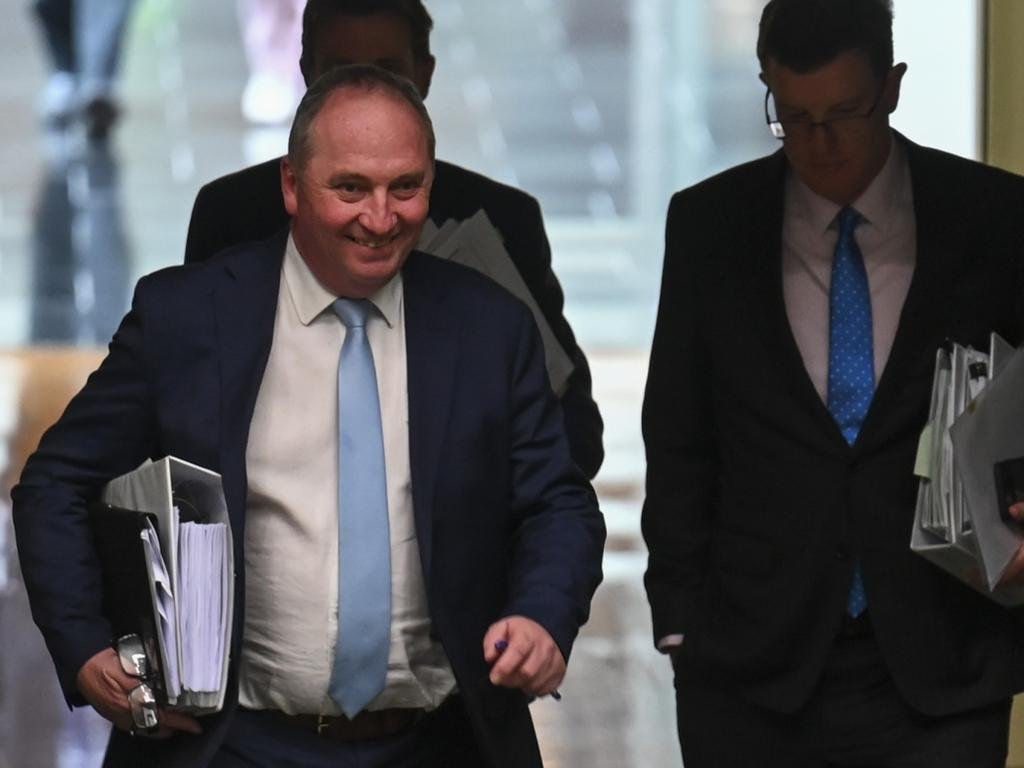


The resurrection of Barnaby Joyce as leader of the National Party offers a lot of upside to the Morrison government. Of course, it also brings danger. High-energy, high-wire populist leaders are like that everywhere. How strange that it seems so natural for the National Party, traditionally the most conservative party, to have such a leader.